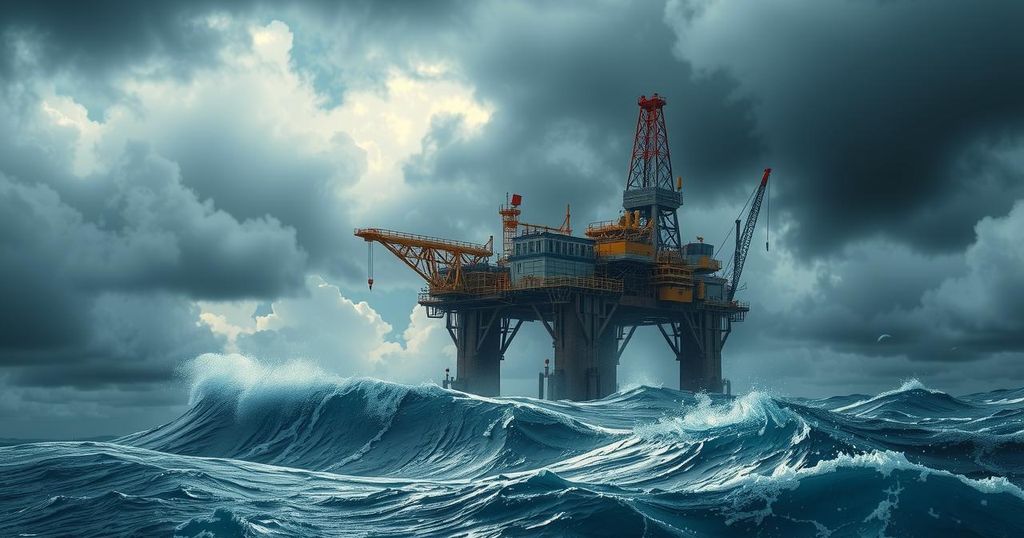Mozambique LNG Project Faces Major Challenges Amid Rising Demand for LNG
Mozambique LNG, a $20 billion project, remains stalled due to security issues and funding challenges, despite expectations for rising global LNG demand. TotalEnergies faces complications from both local insurgencies and shifting political support for fossil fuel projects. The initiation of LNG shipments is now projected for 2030, contingent on overcoming these obstacles and ensuring energy supply security.
Mozambique LNG, a $20 billion project, faces significant challenges and uncertainties despite predictions of increasing global LNG demand. Operations have been halted since 2021, when TotalEnergies declared force majeure due to escalating violence in the region. The company is now exploring a restart but contends with repercussions stemming from extensive transition campaigning against fossil fuels.
In late 2022, TotalEnergies failed to persuade the outgoing Biden administration to release $5 billion in loans for the Mozambique LNG project. This was anticipated given the Biden administration’s stance on natural gas and LNG. With the potential change in administration, it remains uncertain if the Trump administration would support such funding, particularly considering previous moves to bolster American energy production.
Despite skepticism about future LNG demand, recent developments indicate a robust market for LNG, particularly in Europe where gas prices have surged due to seasonal demand. Concerns about depleting gas stocks in Europe further underscore the growing reliance on LNG, countering the narrative of an ongoing transition away from hydrocarbons, as even coal demand continues to rise globally.
The complexity of the Mozambique LNG situation is heightened by the region’s security risks and the involvement of initial financial supporters, who are now reassessing their commitments. Reports suggest the British government might seek to withdraw from its financial obligations due to evolving priorities around transition initiatives.
Northern Mozambique continues to grapple with an Islamist insurgency, which halted LNG project developments in 2021. Although the security situation has improved, aided by Rwandan forces, tensions over alleged Rwandan support for rebel groups in the Democratic Republic of the Congo have sparked protests and calls for sanctions within Europe, complicating the project’s restart further.
Ultimately, the energy demand landscape will dictate the future of the Mozambique LNG project. Initially scheduled to commence production in 2024, projections now delay this timeline to 2030. Nevertheless, if global LNG demand increases as expected, it could validate the $20 billion investment in the project and prompt additional funding towards ensuring a secure operational environment. Ultimately, energy supply security plays a decisive role in the project’s viability.
The Mozambique LNG project, facing a complex interplay of geopolitical, economic, and security challenges, highlights the uncertainties surrounding large-scale energy investments. While global LNG demand appears promising, the realities of the situation—including funding obstacles and local instability—may significantly delay project progression. Future market dynamics and energy needs will ultimately determine the fate of this ambitious initiative.
Original Source: oilprice.com




Post Comment